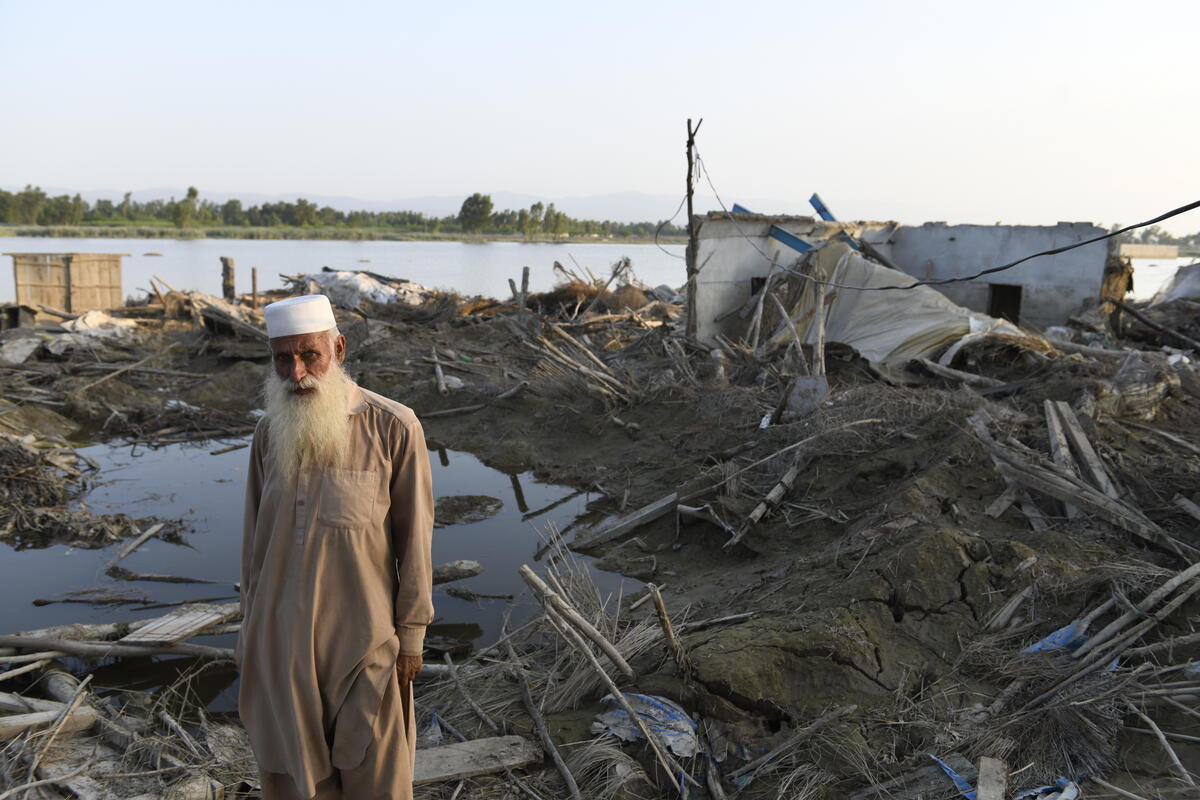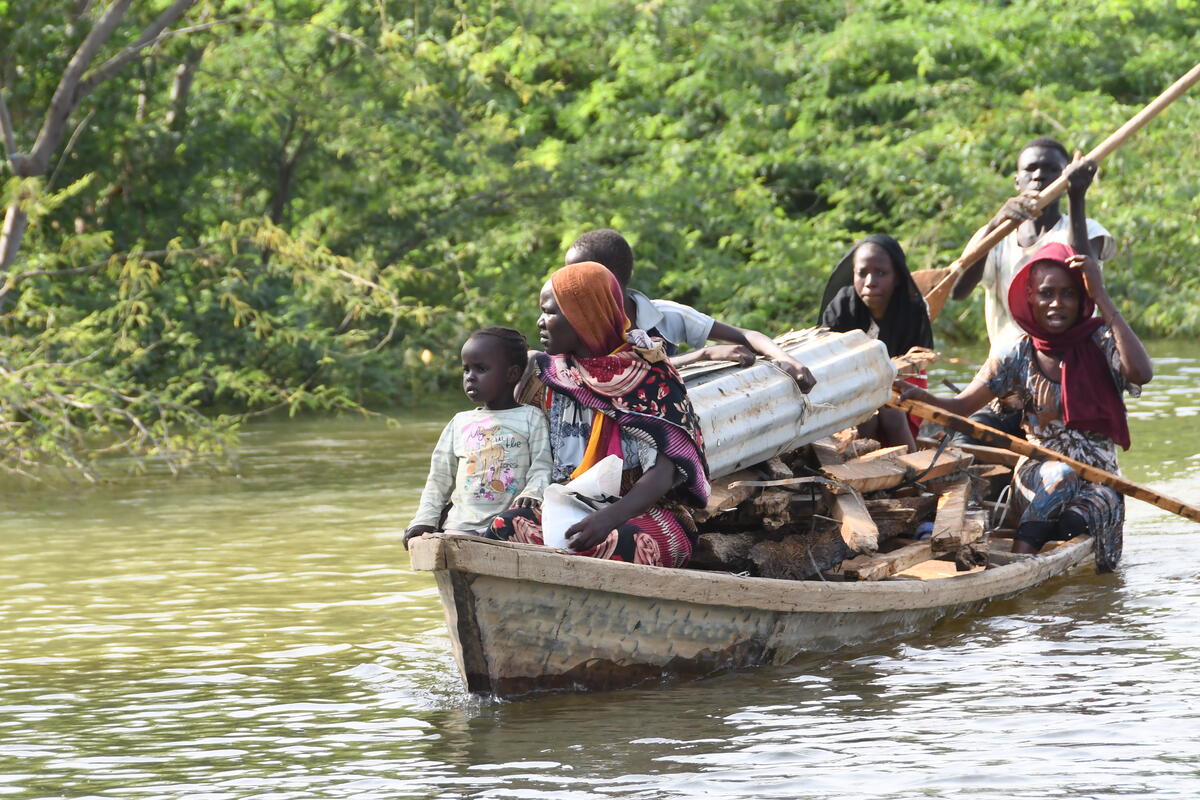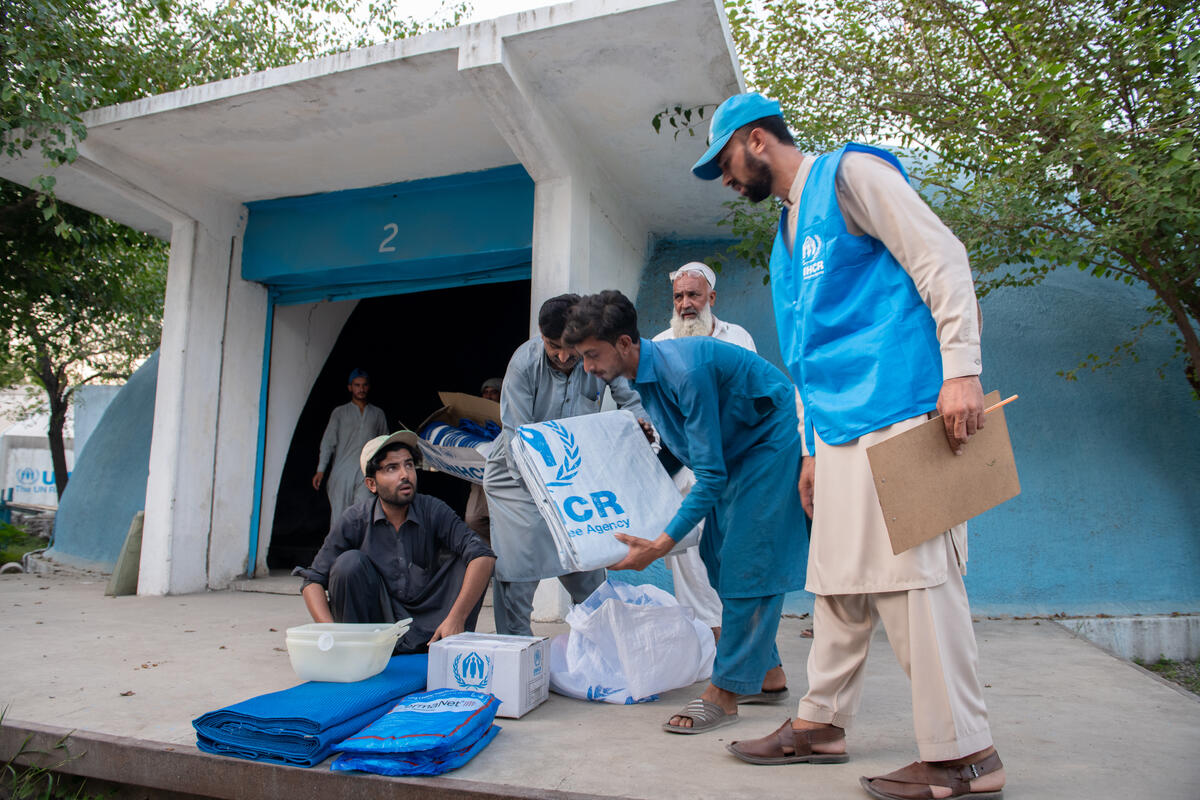UNHCR workers rush to reinforce dykes around flooded camps in Kenya
UNHCR workers rush to reinforce dykes around flooded camps in Kenya

DADAAB, Kenya, November 15 (UNHCR) - UN refugee agency workers were rushing on Wednesday to protect tens of thousands of Somali refugees who have been uprooted by devastating flooding in north-eastern Kenya.
Earth-moving equipment was being deployed to reinforce dykes holding back waters to the west and south of the Dagahaley camp, one of three settlements at Dadaab holding some 90,000 mainly Somali people.
"Should this dyke burst, the consequences would be disastrous for the population," said a UNHCR situation report, adding that further rains would increase the danger to Dagahaley's 37,000 residents.
Heavy rains late last week killed two people, left more than 78,000 uprooted in the Dagahaley and Ifo camps, and caused latrines to overflow, leaving the region seriously affected by polluted water.
UNHCR teams who reached the two camps on Tuesday found that the situation was "catastrophic," particularly in Ifo, where health experts found "the first cases of feverish children with eye and skin infections, and diarrhoea becoming widespread," the report said.
While waters had receded slightly, UNHCR decided to postpone a general fortnightly food distribution from Wednesday until Thursday. UNHCR and its partners have begun distributing limited food and medical aid, but the refugees have had little opportunity to cook in the wet conditions.
"The nutritional state of the population is therefore becoming critical," the report said, while also noting that there was no dry wood for cooking.
The situation was not as desperate in Dagahaley, where schools had managed to conduct final exams, but the dykes were a concern. The waters destroyed hundreds of makeshift shelters in both camps.
Dadaab was also badly flooded, while the waters cut the main supply route from the town to the rest of Kenya. The UN refugee agency is organising an airlift of essential commodities for the camps.
The flooding has severely disrupted UNHCR operations to settle thousands of Somali refugees who fled to Kenya in recent months to escape the conflict in their homeland. Since the beginning of the year, more than 32,000 Somali refugees have fled to Kenya. The total population of refugees in Dadaab's camps now stands at 160,000 people, the majority of them from Somalia.
UNHCR estimates that up to 90 percent of Ifo's 54,000 refugees have been affected by the flooding, while in Dagahaley, some 10 kms away, up to 80 percent of the camp's 37,000 residents may have lost much of their belongings and their homes.
UNHCR staff in Dadaab report that this year's floods are comparable with the massive flooding which followed the record 1997 El Niño rains that swamped much of low-lying eastern Kenya.









